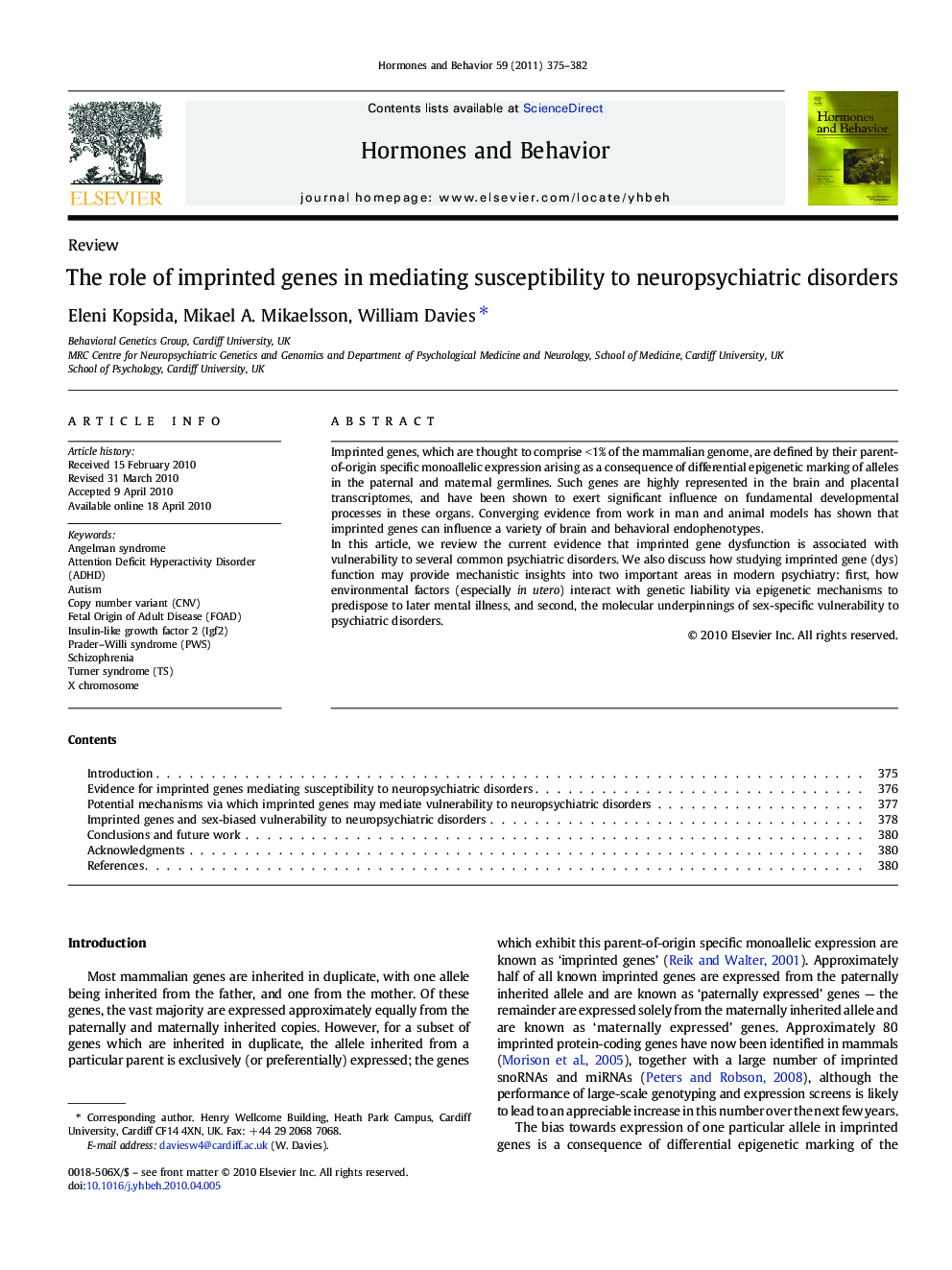| Article ID | Journal | Published Year | Pages | File Type |
|---|---|---|---|---|
| 323209 | Hormones and Behavior | 2011 | 8 Pages |
Imprinted genes, which are thought to comprise < 1% of the mammalian genome, are defined by their parent-of-origin specific monoallelic expression arising as a consequence of differential epigenetic marking of alleles in the paternal and maternal germlines. Such genes are highly represented in the brain and placental transcriptomes, and have been shown to exert significant influence on fundamental developmental processes in these organs. Converging evidence from work in man and animal models has shown that imprinted genes can influence a variety of brain and behavioral endophenotypes.In this article, we review the current evidence that imprinted gene dysfunction is associated with vulnerability to several common psychiatric disorders. We also discuss how studying imprinted gene (dys)function may provide mechanistic insights into two important areas in modern psychiatry: first, how environmental factors (especially in utero) interact with genetic liability via epigenetic mechanisms to predispose to later mental illness, and second, the molecular underpinnings of sex-specific vulnerability to psychiatric disorders.
